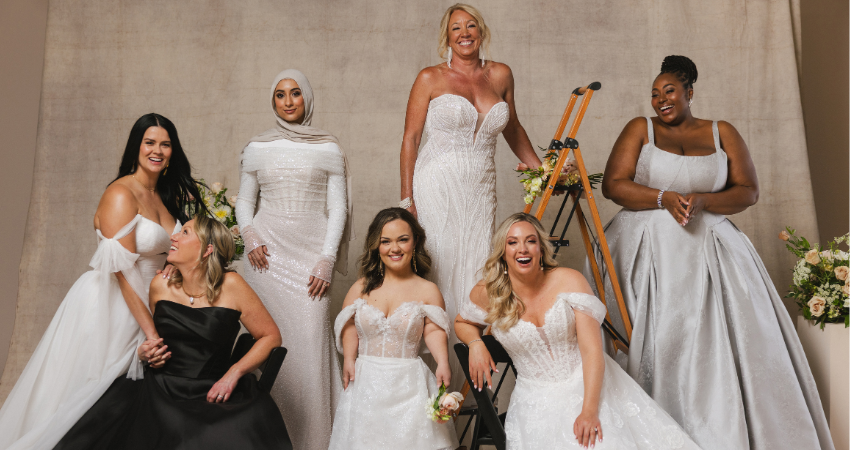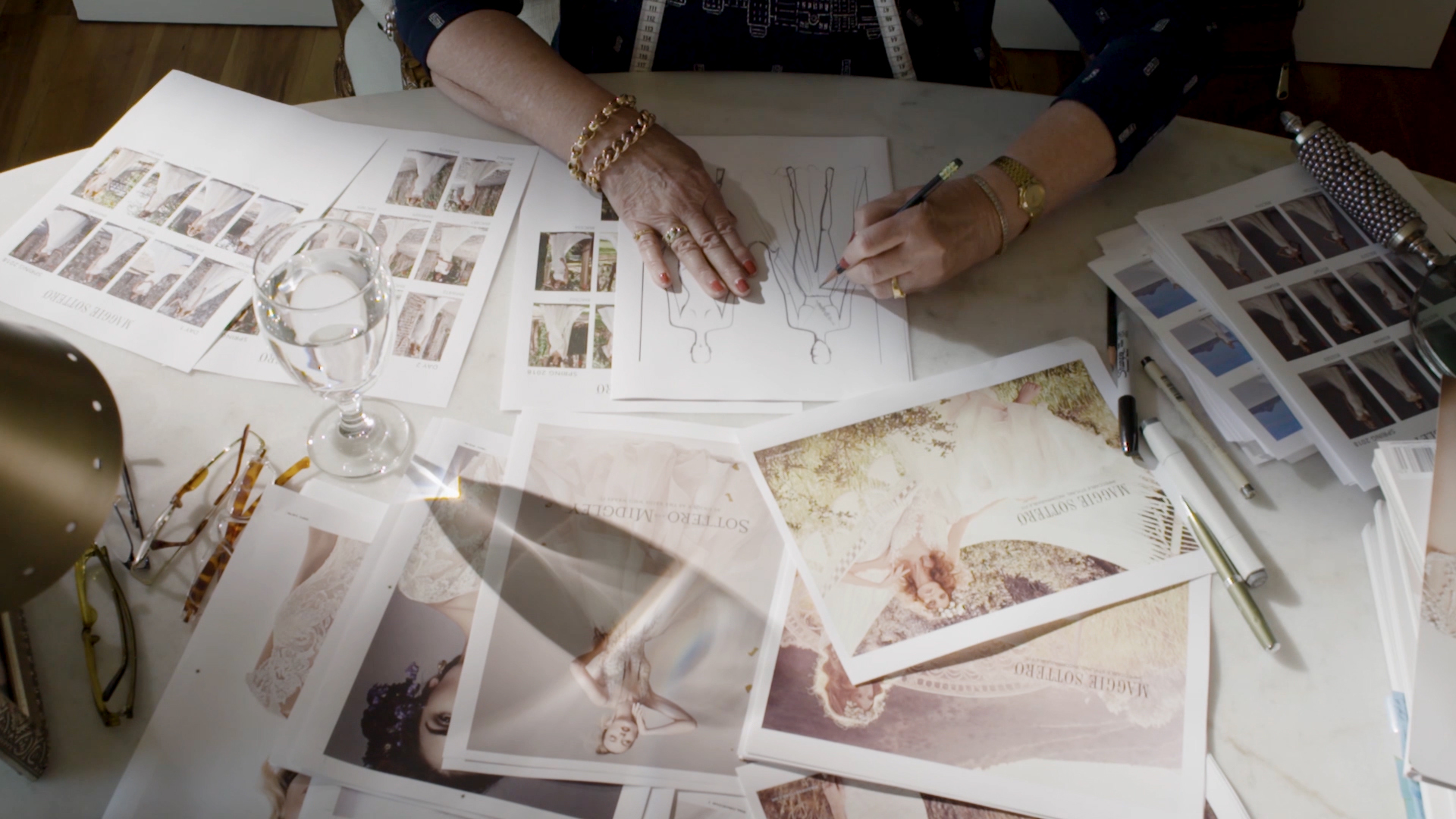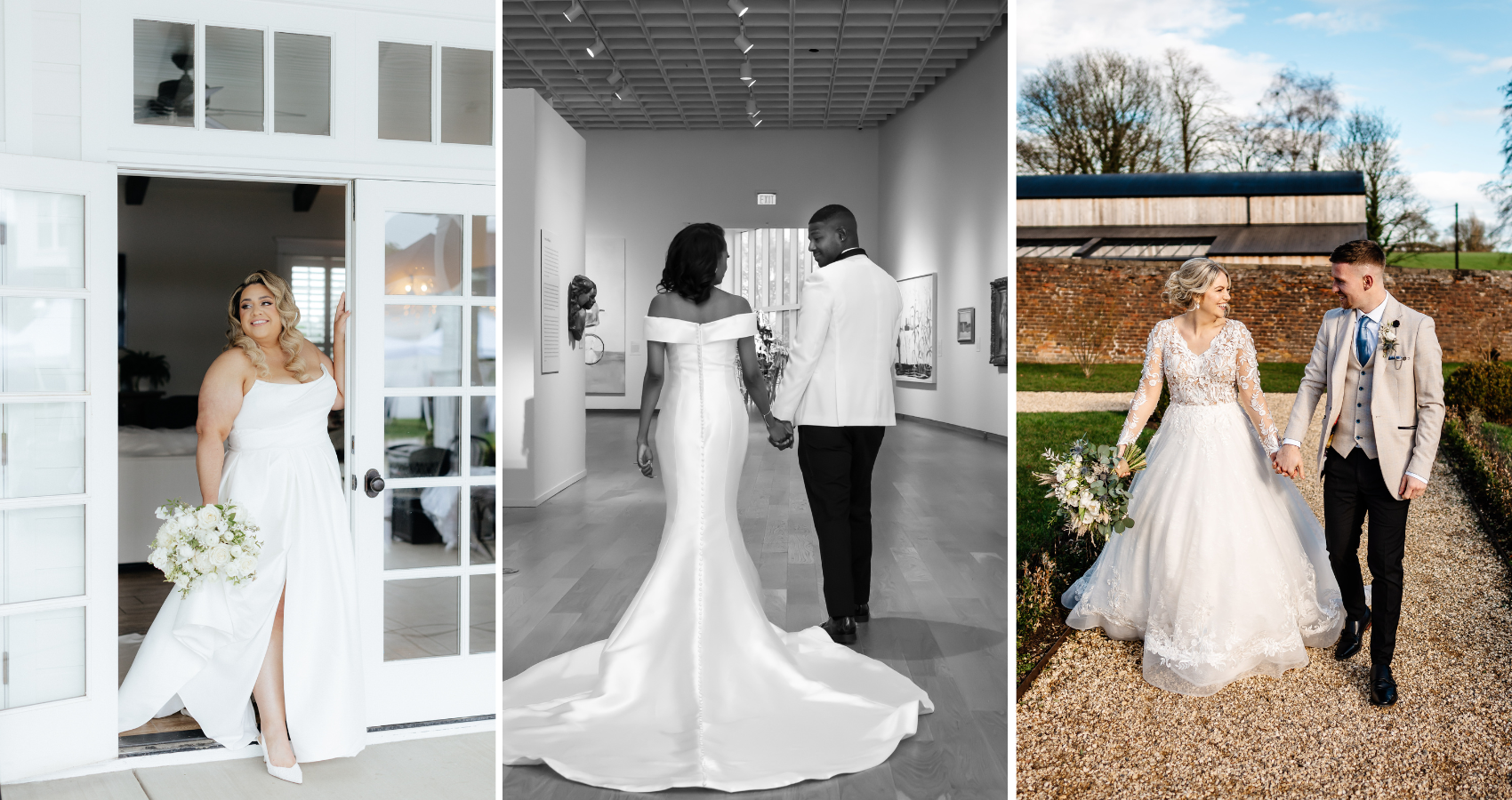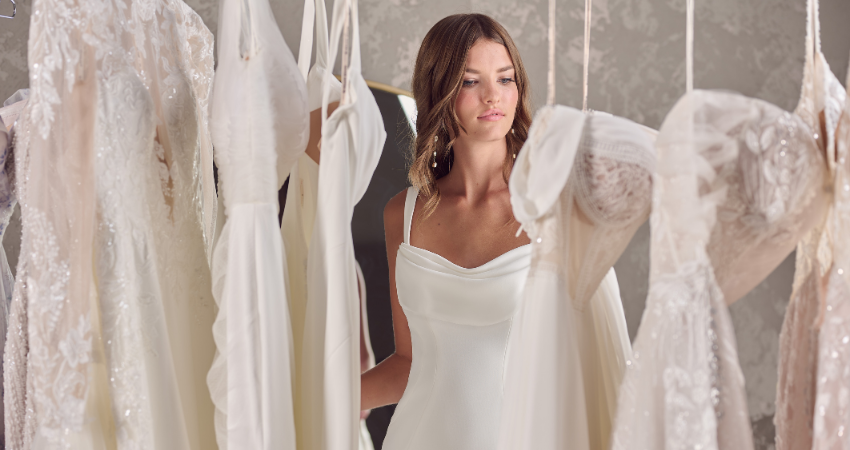15 Jewish Wedding Traditions To Know For Jewish American Heritage Month
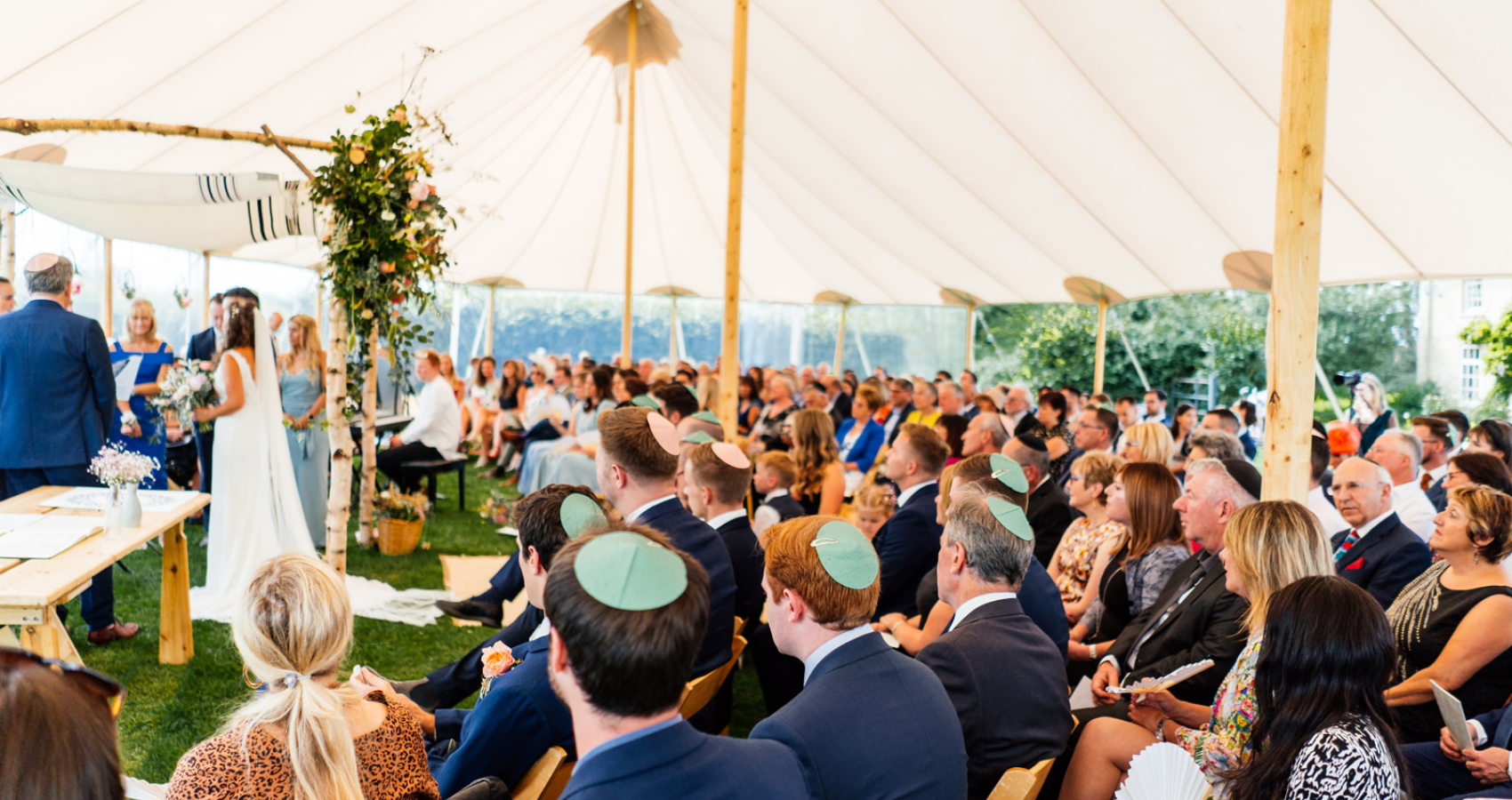
Mazel! Happy Jewish American Heritage Month! The Jewish community is full of beautiful traditions, history, and practices – especially when it comes to their marriage ceremonies! That’s why we wanted to celebrate our beautiful Jewish Maggie brides and honor some unique Jewish wedding traditions.
Before you start reading about all these beautiful cultures, make sure to sign up for our exclusive #MaggieInspiration text messages to learn all about other wedding traditions, and other tips and tricks for your big day:
What is Jewish American Heritage Month?
First off, what is Jewish American Heritage Month? Since 2006, the United States has celebrated the 350-year history of Jewish contributions to American society. From intimate celebrations, to festivals (too ooh’ing and aw’ing over gorgeous weddings) people have been celebrating ever since!
We can’t forget the people responsible though! Thanks to the efforts of the Jewish Museum of Florida and the South Florida Jewish community leaders we are able to recognize this month in its fullest.
What is Unique About Jewish Weddings?
While most Jewish wedding ceremonies can be relatively fluid and full of personalizations, there is a basic outline whether it is a Reform wedding or strictly Orthodox. However, no matter the type of ceremony, Jewish weddings hold traditions and rituals that honor history, family, and religion to the highest standard!
Jewish Wedding Traditions
Aufruf: “To Call Up”

PC: Vinicius “amnx” Amano
Aufruf means “to call up” and symbolizes when the bride and groom are called to recite the blessing, aliyah! After the Rabbi blesses the couple for their special day, members of the congregation throw candies and other sweet treats like raisins at the couple to wish them a sweet life! Sounds pretty sweet, right??
Fasting
Next on the list is fasting (don’t worry though, you get to indulge in your cake after the wedding day!).
On the wedding day, the bride and groom fast from daybreak until after the chuppah to ask for forgiveness. Then, they have their first meal as husband and wife at the ceremony.
The Shomer and Shomeret
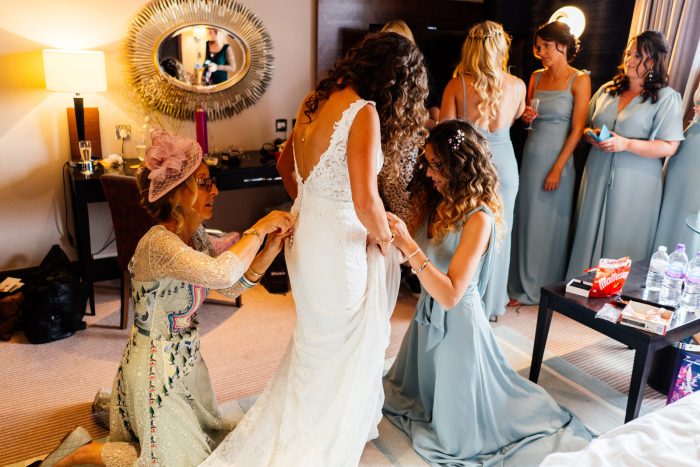
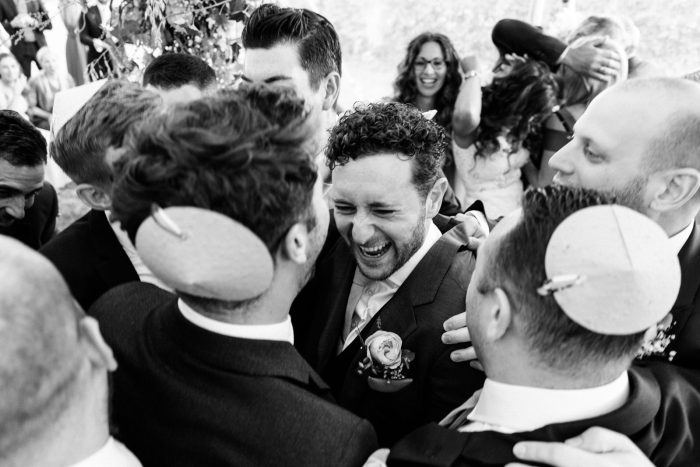
PC: Aaron Collett Photography
On your wedding day, you are obviously the center of attention. However, during Jewish weddings, it is taken to a whole new level! On the day of and leading up to the wedding, the bride and groom are treated like “Queen and King” by their family and friends.
A Shomeret is assigned for the woman and a Shomer is assigned for a man to make sure that you are treated like the royalty you are for your big day! Maids of Honor and Best Men, you have a lot to live up to!
Jewish Henna
Many cultures have a henna custom for brides, and the Jewish culture is no different! Jewish henna is a celebrated tradition in Moroccan Jewish and other Mizrahi wedding celebrations.
The henna is applied to the bride a week before the wedding while being showered with gifts and symbolizes fertility, good luck, and protection against evil eyes. Usually, it is usually paired with a red and gold velvet caftan and an intricate headpiece (we love some unique accessories).
Along with the unique design of the henna on the bride’s hands, a small portion of henna is placed on the groom’s and bride’s hands and then tied with a ribbon.
Psst… Take a look at our wedding nails blog so you can match them to your gorgeous henna!
Head Coverings
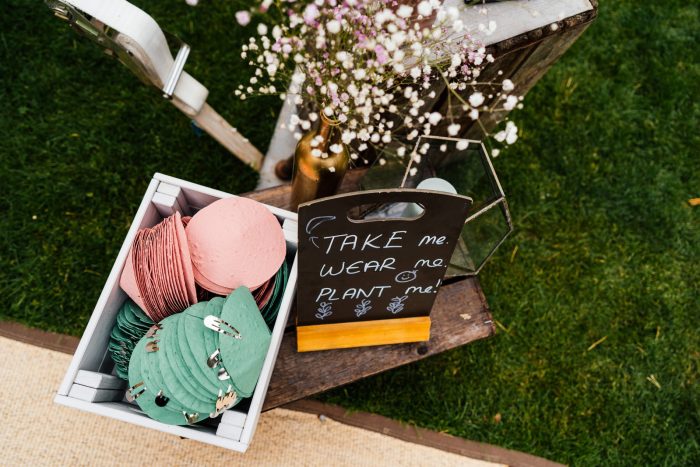
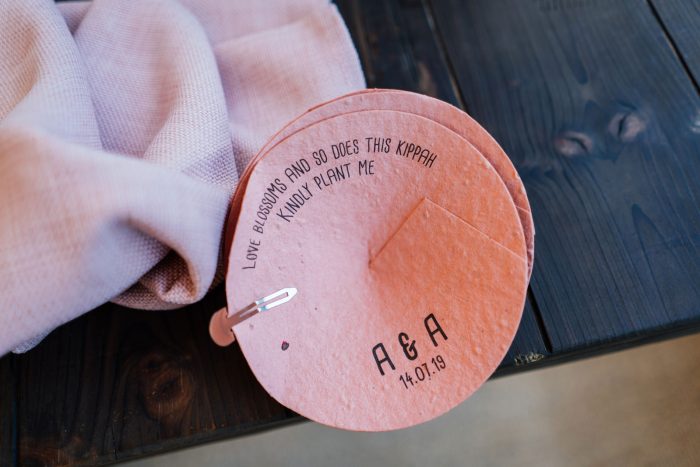
PC: Aaron Collett Photography
Commonly during traditional Jewish weddings, guests are required/encouraged to cover themselves! Male guests typically cover their heads with a skullcap (traditionally known as a yarmulke), and women use lace head coverings. Best of all? The bride and groom usually provide the head coverings for their guests!
Just take a look at this Real Bride and her groom who provided the cutest compostable head coverings!
Chuppah
I think we all remember that scene where Luke in Gilmore Girls gave Lorelei a Chuppah for her wedding! Well, let’s read about the significance of this beautiful tradition!
The Chuppah is a very important (and gorgeous!) aspect of most Jewish wedding ceremonies. Not only do the vows, ring exchange, and Ketubah blessing happen underneath, but it also represents the life and home that the couple will build together.
What happens leading up to the Chuppah is important as well though! Typically, the groom’s parents walk him down the aisle, and then the bride’s parents follow. They then proceed to stand underneath the chuppah during the ceremony with the bride, groom, and rabbi.
Blessings of Kiddushin (betrothal)
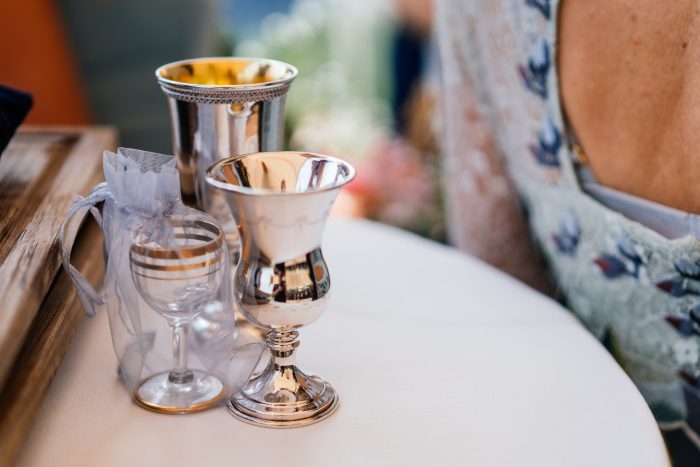
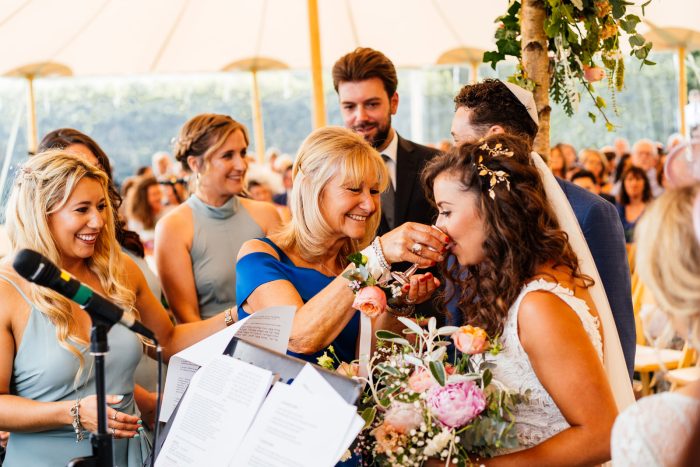
PC: Aaron Collett Photography
Sharing wine is another integral part of Jewish weddings and two cups are used in the marriage ceremony. They drink from the first cup during the blessings, and then they drink from the second cup after the blessings.
Sheva B’rachot: Seven Blessings
This blessing begins over a cup of wine and focuses on joy, celebration, and the power of love! These seven blessings are usually read in Hebrew and English and are recited by friends and families (don’t worry you can still do your cheesy Maid of Honor speech at the reception!).
As the wine is drunk and the ceremony ramps up, peace, joy, and companionship are wished on the bride and groom!
Bedeken Jewish Wedding Tradition
This wedding tradition usually happens before the wedding and represents modesty. During this ceremony the groom “veils” the bride which signifies his love for her inner beauty (awe).
The groom and his male family members also make a procession around the bride sitting on her throne and celebrate her during the ceremony. Sounds ideal, right?!
Psst… Take a look at our Modest Wedding Dresses to wear during this ceremony and your wedding!
Giving Out The Rings
As much as we love a good diamond, in Jewish culture, the classic gold band is preferred during the marriage ceremony (stunning)! This is because gold is “everlasting and beautiful” – just like your marriage will be!
This wedding band is given under the chuppah and is meant to be worn every day afterward on the right index finger of the bride. After this, congratulations! You’re officially married.
Mazel Tov!
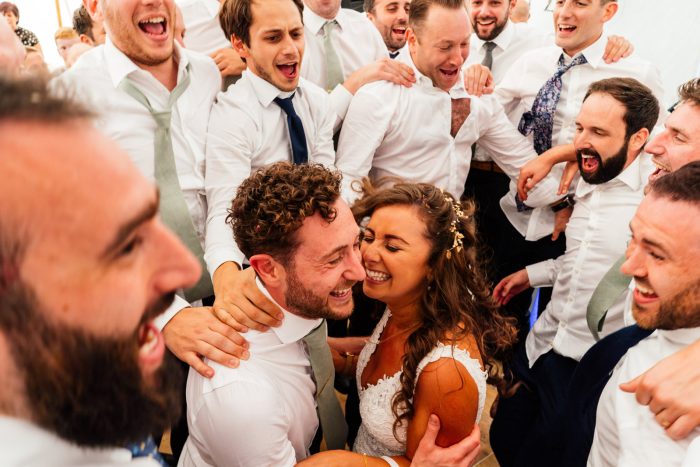
PC: Aaron Collett Photography
I think we are all pretty familiar with the term “Mazel Tov!” but do you know what it means? This part of the ceremony is cheered after the glass is broken and means “good luck” or “congratulations” to the happy new couple!
Breaking of the Glass
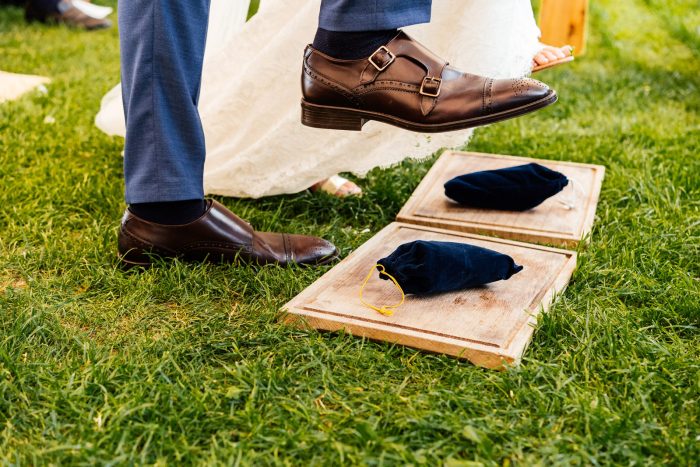
PC: Aaron Collett Photography
Another widely known Jewish wedding practice is when the groom (and ocassionally the bride) step on a class inside a cloth bag and shatter it!
This tradition has a lot of different symbolism. Whether you believe it represents the destruction of the Temple in Jerusalem, standing together in hard times, or your commitment to one another, it’s a beautiful and popular wedding tradition!
Read this article to see how you can save the glass from your wedding for a precious keepsake!
Yichud
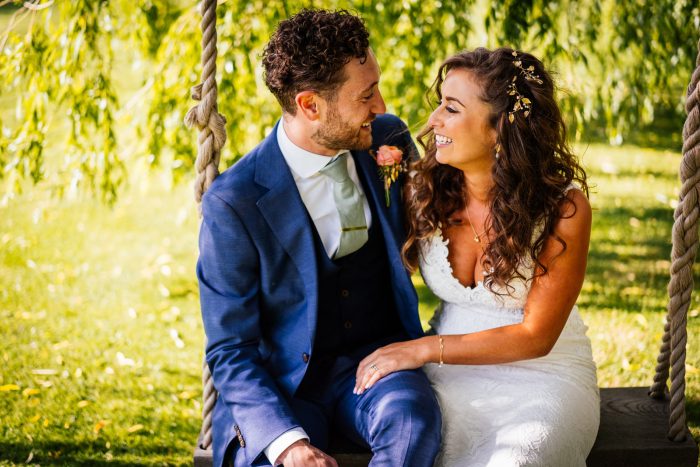
PC: Aaron Collett Photography
After being around family all day any newly married couple might want some time alone together. Well, during Jewish ceremonies they planned for that! Tradition dictates that that new couple gets at least eight minutes to spend together. The yichud (seclusion) let’s the couple celebrate their new bond and relationship!
Not only do you get to finally be alone and catch a breath, but you also get to share your first meal together!
Seudah – The Jewish Wedding Reception
Seudah is finally the time when the couple and their loved ones get to party!
During Orthodox ceremonies, the men and the women will typically be separated. However, during Reform Jewish ceremonies the meal and dancing will be mixed!
Hora and Mezinke
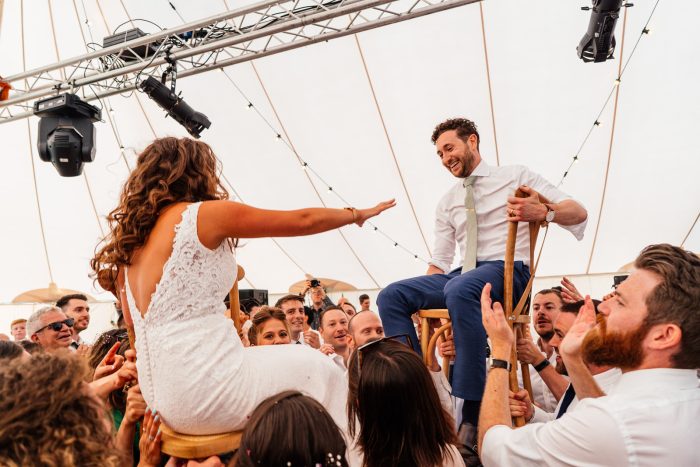
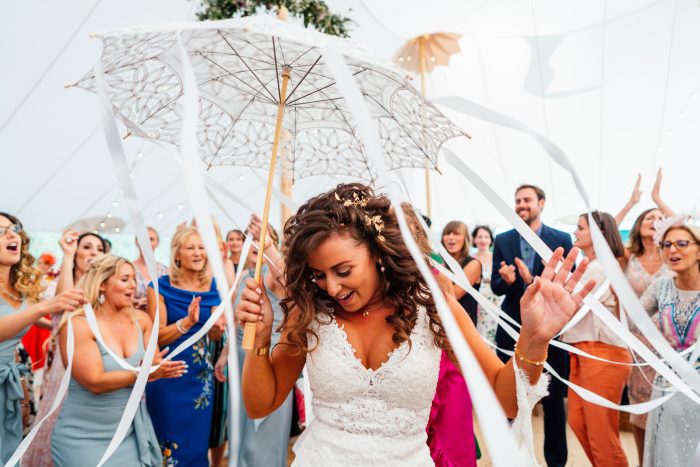
PC: Aaron Collett Photography
Get your dancing shoes on because here comes the celebratory dancing part of the evening – the hora and the mezinke. During this lively part of the wedding, the bride and groom sit on two separate chairs while sharing a cloth between them while they are lifted up into the air!
During the mezinke, the bride and groom get to have a special dance with their parents to honor and love them before they start their new lives as a married couple!
Mazel and Happy Jewish American Heritage Month to all of our beautiful brides out there! Don’t forget to Share Your Wedding with other brides to display all of your beautiful traditions, and sign up for our Newsletter to read more about other wedding traditions in the future (and get exclusive Maggie content).
More Blogs Like This:
Hispanic Wedding Traditions: Celebrating Our Real Brides for Hispanic Heritage Month
Beautiful Love Stories and Precious Traditions: Stories from Black Brides
Rustic Wedding Featuring Hawaiian Traditions and a Beaded Sheath Wedding Dress












